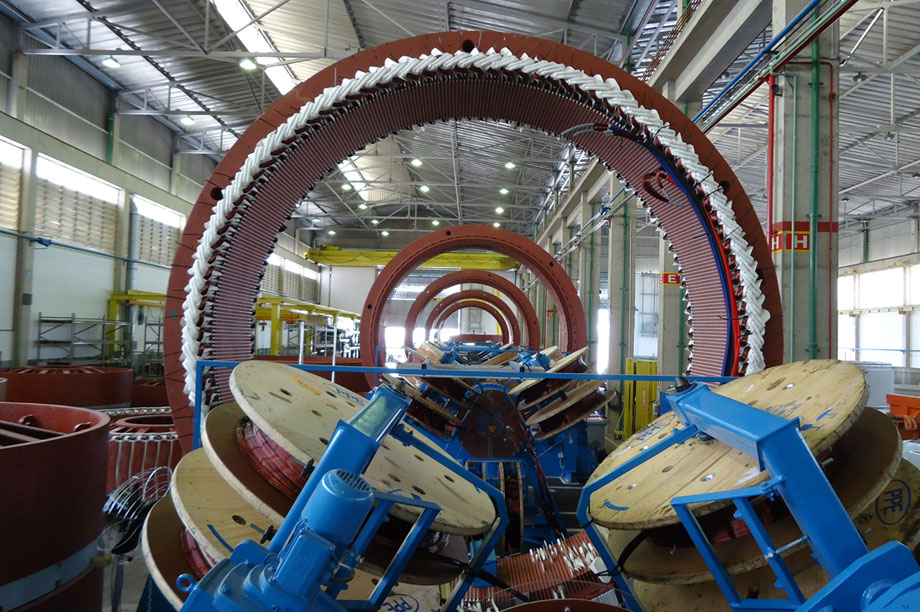Japan and the European Union filed complaints with the WTO in 2010 about Ontario's rules, which demand minimum domestic content levels of up to 50% for wind projects. A WTO panel decided in December that the requirements contravene the multilateral General Agreement on Tariffs and Trade (GATT) and the WTO Agreement on Trade-Related Investment Measures.
"We think this creates a very important precedent," said Pierre Tardieu, regulatory affairs adviser at the European Wind Energy Association (EWEA). EWEA now wants the EU to turn its attention to other jurisdictions requiring or considering local content - including Turkey, Ukraine, Croatia, Brazil, South Africa and Russia - and use the Ontario decision as leverage.
"We're extremely keen that the European Commission start bilateral discussions with these markets with the intention of having them phase out these policy instruments," said Tardieu.
EWEA also hopes that the Ontario decision will provide impetus for the EU to pursue a multilateral free-trade agreement on renewable energy, administered by the WTO, that would lay out rules governing not just non-tariff barriers such as local content, but also address the equally thorny issue of import duties on renewable energy equipment. "This would obviously be in the medium term," Tardieu said.
In the meantime, the Ontario decision could open the door to other WTO complaints. But a key factor will be the size and importance of markets involved, said Lawrence Herman, international trade specialist at Toronto law firm Cassels Brock & Blackwell. "It will depend on the commercial interest at stake," he said.
Key difference
Brian Gaylord, an adviser at Make Consulting who focuses on Latin America, said he has detected no particular concern about the implications of the Ontario decision in Brazil, a major market for wind.
The two jurisdictions have fundamental differences, he points out. While Ontario's domestic content rules mean that companies that fail to meet the requirement are excluded from the market, that is not the case in Brazil. Meeting that country's local content level of 60% allows companies access to a subsidised credit line from BNDES, the Brazilian development bank. Most opt for it, said Gaylord, but they are not required to.
That difference may be why Ontario ran into trouble where other jurisdictions have not, said Matt DaPrato, a senior research analyst at consultancy IHS Emerging Energy Research. "Whenever you are setting up local content or trying to promote direct job benefits from economic investments in a certain industry, you have to be very careful about how it is structured. This is really a case in point," he said.
However, providing special incentives for local content rather than making it a condition of market participation may make a difference to the WTO, but such measures could also be attacked as a discriminatory preference, said Herman.
Ultimately, the role of WTO panels is to weed out trade-inhibiting practices, he said. "A defending country has a pretty high bar to cross to defend a measure that has some element of preferential treatment," Herman said. "After all, we're talking about free and fair trade. That's what the panels look at."
Canada's federal government said it will appeal the WTO decision, but Herman doubts it will be successful. "The panel analysis, I think, is pretty thorough and my feeling at this stage is that it would be an uphill battle."
Knock-on effect
Although a WTO ruling is not legally binding, said Herman, Ontario will likely roll back its local content provisions if the appeal fails. If it does not, Japan and the EU would have the right to retaliate by slapping duties on Canadian exports to make up for the damages they have suffered.
"I don't think it would be in Ontario's interest to just thumb its nose at the WTO panel finding," said Herman.
The province will likely see a chill on investment from manufacturers that may have been considering entering the market, said DaPrato, but those who have already committed to sourcing components there will likely stay the course. German turbine maker Repower, for example, announced plans in December for a blade plant in southern Ontario and said the WTO ruling has no impact on that decision.
"Repower is continuing to grow its business in the province independently from the political conditions," said managing director Helmut Herold.

.png)



.png)









